- Home
- Christie Golden
Homecoming
Homecoming Read online
Thank you for purchasing this Pocket Books eBook.
* * *
Sign up for our newsletter and receive special offers, access to bonus content, and info on the latest new releases and other great eBooks from Pocket Books and Simon & Schuster.
CLICK HERE TO SIGN UP
or visit us online to sign up at
eBookNews.SimonandSchuster.com
Contents
Acknowledgments
Prologue
Chapter 1
Chapter 2
Chapter 3
Chapter 4
Chapter 5
Chapter 6
Chapter 7
Chapter 8
Chapter 9
Chapter 10
Chapter 11
Chapter 12
Chapter 13
Chapter 14
Chapter 15
Chapter 16
Chapter 17
Chapter 18
Chapter 19
Chapter 20
This one is for the valiant crew of the U.S.S Voyager:
Kate Mulgrew
Robert Beltran
Tim Russ
Robert Picardo
Robert Duncan McNeill
Roxann Dawson
Garrett Wang
Jeri Ryan
Ethan Phillips
and
Jennifer Lien
Thanks for the adventure.
ACKNOWLEDGMENTS
Writing a book doesn’t take place in a vacuum. I’ve had the assistance and support of many during this remarkable project. First and foremost, I’d like to thank my husband, Michael Georges, who’s been willing to share his house with the crew of the U.S.S. Voyager for many a year now. He and my good friend Robert Amerman have often helped me brainstorm when I’ve reached a problem spot and I’m very grateful. Thanks also to a great group of friends and fellow authors—Mark Anthony, Chris Brown, Raven Amerman, Stan and Kathy Kirby, and Carla Montgomery. You guys are the best.
Supportive too have been my parents, James R. and Elizabeth C. Golden. They are sometimes a bit bemused by their wild child, but well do I remember the efforts made to get me home in time for Star Trek reruns. Looks like it all paid off.
Thanks also go to my agent, Lucienne Diver, who had no idea what she was starting almost ten years ago when she said casually, “Would you be interested in doing any books for Star Trek?” There was only one answer for that one.
A very special thank-you is due to John Ordover, for entrusting me with the care and feeding of the Voyager crew as we all head out together in this new direction. It’s an honor to be the one selected to create the relaunch, and his support has been unwavering. Thank you, John.
Finally, a deep and heartfelt thank-you to all my fans. I never lose sight of the fact that my readers are the ones who make it possible for me to continue to write these wonderful stories. You have sent me hundreds of e-mails over the years, all of them expressing your appreciation for my work and anticipation of this project. It’s taken a little longer than we all thought, but sometimes you have to take the time to do something right. And I really wanted to do this right! Let’s hope you think I succeeded.
And so the voyage continues . . . .
Thanks and blessings to you all from Denver, Colorado
—Christie Golden
PROLOGUE
AGE THREE
She is alone, as she usually is, sitting in a corner far away from anyone’s notice. Wetness soaks her bottom, but she says nothing. She is too fearful of the Hand. The Hand descended without any reason she could fathom, to strike hard against her small, soft cheeks, or seize her chubby arms, leaving bruises that would later disappear with the hum of something shiny and metallic. Young as she is, she already knows it is best to say nothing, to draw no attention to herself, to sit alone in the corner and play with the one small toy she is permitted to have.
Vaguely, she remembers a time before the man had come, when her mother’s eyes shone and her lips parted in smiles and she laughed like the sun. When the girl was held close and kissed, and slept deeply, and dreamed dreams of moonbeams and ponies.
Now her mother is silent, sending that same message to her daughter. Her eyes are dull and she no longer laughs. Her mother, too, lives in fear of the Hand. And the girl’s dreams now are of screams and blood.
She plays with Dolly, making the toy dance and sing as she, the flesh-and-blood girl, cannot.
A shadow falls over her. She freezes in terror.
The Hand reaches down, and she shrinks back. But the Hand has not come for her, but for Dolly. It grabs the old-fashioned toy. There is a bellow of something incoherent but very, very angry, and the Hand rips Dolly’s head from her rag shoulders.
The girl whimpers, very softly. She cannot help herself. The Hand descends and she falls hard on the floor. She knows better than to rise or cry out, so she lies quietly, blood trickling from her mouth, her heart beating as fast as a rabbit’s, until the shadow leaves.
The owner of the Hand has lurched off somewhere else. She hears the voice of her mother, high and strained and tight with fear, and turns away. The girl cannot let herself hear her mother’s cries. If she does, she somehow knows, she will go mad.
For a moment, she simply stares at the mangled toy. Then, slowly, she picks up Dolly’s torn body in one hand, her severed head in the other, and continues to play.
Chapter
1
TOM PARIS LOOKED AT THE NEWBORN, ONLY a few minutes old, cradled awkwardly in his arms. She weighed only a few kilos, but felt so solid, so real to him. Her skin was reddish brown and wrinkled. Thick, coarse black hair covered her skull, which was larger even than a human baby’s. With a tender finger, he traced the small ridges that furrowed her brow. As he watched, she yawned and waved a tiny fist in the air, almost defiantly, as if she dared anyone to come between her and a nap.
“She’s the most beautiful thing I’ve ever seen,” he said, and even as he acknowledged his daughter’s wrinkled ugliness, he knew the words were completely true. He glanced over at B’Elanna. “Except, of course, for her mother.”
Gently, he sat down on the sickbay bed beside her as she smiled tiredly at him.
“Nice save,” she said, with a hint of her old robust demeanor.
“How’s Mommy feeling?” he asked.
“Mommy’s felt better,” she admitted, and extended her arms for the child.
“Mother and child are just fine, though Mother is understandably cranky,” said the Doctor. “You should be able to return to duty in approximately three days, Lieutenant. I feel compelled to inform you that I have downloaded everything in the database on the care of both Klingon and human infants.” He preened a bit. “I’d make an excellent baby-sitter.”
Tom grinned and gave his wife the baby, and his arms felt oddly empty as B’Elanna guided the child to her breast. He could get into this whole father thing, he thought.
“Janeway to Lieutenant Paris.”
Tom grimaced, then replied, “Paris here.”
“Report to my ready room.”
He looked at B’Elanna. “Aye, Captain.” Reluctantly he rose. “I thought we were on parental leave, but apparently duty calls. Sorry, girls.”
B’Elanna gave him a strange look that he couldn’t read. She reached out and touched his face tenderly. “I love you, Tom.”
Now, why would she pick this time to say that? What was going on in that head of hers? “I love you too,” he said, taking the hand that caressed his cheek and kissing it. “Both of you. Be back as soon as I can.”
* * *
When he reached the bridge, he was surprised to see Captain Janeway sitting in her command chair, not in the ready room. He raised an eyebrow in question. In response, she nodd
ed toward the room. “In the ready room, Mr. Paris.”
This was getting downright confusing. “Yes, ma’am,” he said.
The door hissed open. An imposing-looking, white-haired man rose from where he had been sitting at Janeway’s desk. Tom’s throat went dry.
“Dad,” he breathed. Then, snapping to attention, he said, “Your pardon, sir. I mean, good day, Admiral Paris.”
Of course, this was going to happen. Admiral Owen Paris had been heavily involved in Project Voyager. Tom knew that. Of course, as the project’s nominal head, Paris would be the first to board when the lost vessel finally returned home. But Tom had been so thoroughly engrossed in thoughts of his wife and child that the likelihood that he would soon be reunited with his father had completely slipped his mind. Now he understood B’Elanna’s peculiar look as he had left. She had figured it out before he had.
Admiral Paris’s face was carefully neutral. Damn, thought Tom, he looks so much older, so much more careworn. The years that had passed since they last spoke had not been kind to him. Tom wondered how he appeared in his father’s eyes.
Admiral Paris folded his hands behind his back, mirroring his son’s formal stance.
“Lieutenant Paris. It’s. . . it’s good to see you. I’m glad you completed your mission so successfully. Your captain has many glowing things to say about you.”
“No more than I have to say about her, sir. It’s been a privilege to serve with her these past seven years.” Why were his eyes stinging so? And that lump in his throat . . . .
Later, Tom would never be able to remember just which of them had made the first move. Maybe both of them did. But the next thing he knew, he was in his father’s arms. It was a sensation he had not experienced since—he couldn’t remember. Had his father ever embraced him so freely, so tightly, before? Had he ever wanted to open his arms to the rigid authority figure the untouchable, aloof Admiral Paris had always represented?
It didn’t matter. His head resting on his father’s shoulder, Tom smelled the familiar scent of aftershave, and for the first time really believed that, finally, he was going home.
“Dad,” he whispered, brokenly.
“My boy,” Owen Paris replied, his own voice hoarse. “My boy. I’m so glad you’re home.”
They sat and talked for a long, long time. Paris noted that they avoided anything of real import, like whether or not he’d be put back in jail or the fact that Admiral Paris was a grandfather. Tom was shocked to learn that, on a whim, his father had decided to take a cooking class and was laughing out loud at an anecdote about what “blackened chicken” really meant when the door hissed open.
Janeway stood there, smiling. “I wanted to give you some time alone together before I called the senior staff for Admiral Paris’s preliminary debriefing. Tom, does he know. . . ?” She lifted an eyebrow in question.
“Before we begin, Captain,” said Tom, standing straight with pride, “is there time for my father to meet his daughter-in-law and granddaughter?”
Admiral Paris came as close to openmouthed gaping as Tom had ever seen in his life. Tension raced through him. Time to drop the other shoe: “B’Elanna will be so happy to see you, sir.”
He knew Admiral Paris knew who B’Elanna Torres was. A half-Klingon and, like his son, a former Maquis. Silently, Tom pleaded that the fragile new camaraderie they had just established would weather this new storm.
There was a long, taut pause. Then a slow smile spread across the lined face. “It would be a pleasure.”
* * *
When Tuvok reported to sickbay per the Doctor’s orders, he felt a rush of surprise, which he quelled at once. Standing there calmly, his hands folded behind his back, was his eldest son, Sek.
“Greetings, Father,” said Sek calmly. “It is good to see you.”
“And you, my son. I assume that the Doctor requested your presence to administer the fal-tor-voh?”
Sek nodded. “Admiral Paris contacted me approximately fourteen hours ago. I studied the disease extensively during my trip to rendezvous with Voyager. I believe I am adequately prepared to meld with you, Father.”
Privately, Tuvok wondered. A few hours spent reading material on such an intricate, complicated procedure hardly rendered his son, intelligent though he was, “adequately prepared.” But he knew the situation was worsening. He looked at the Doctor, who answered Tuvok’s wordless question.
“The genetic link is more important than actual familiarity with the procedure,” the Doctor said. “And frankly, Commander, time is of the essence. I don’t think anything would be served by waiting until Sek has learned more.”
“Very well,” said Tuvok. To Sek, he said, “We’ll return to my quarters.”
“If you don’t mind,” said the Doctor, “I’d rather have you here, so I can monitor your response. Not to insult you, Sek, but there’s a chance that something might go wrong.”
“It is impossible to insult me, Doctor,” Sek replied. “I have no emotional response to critiques or commentary on my skills or lack thereof. Therefore, I can be neither flattered nor insulted.”
“Vulcans,” the Doctor muttered, rolling his eyes. Tuvok hesitated. This was an intimate, private ceremony. And yet, he was forced to admit that the Doctor had logic on his side. Reluctantly, he lay down on the biobed. He glanced over to see B’Elanna watching him; then she quickly looked away and returned her attention to nursing her child.
“I offer my congratulations on the healthy birth of your child,” he said, somewhat stiffly.
“Thank you, Tuvok,” she replied. She uttered no question or commentary on what she was witnessing, for which Tuvok was silently grateful. “Doctor,” she said suddenly, “Tom and his father are coming down to meet me and Miral. I’d like to receive them in my quarters, if that’s all right.”
“As long as you go directly from that bed to your bed, you should be fine. The brief walk won’t hurt you, and actually would be good for you. But if you start feeling weak, let me know at once, and don’t overtire yourself.”
“Believe me, I won’t,” said Torres. She eased out of bed, tapped her combadge, and, cradling the infant, headed out of sickbay while talking. “Tom, can you meet us in our quarters? I’m getting very tired of sickbay . . . .”
Tuvok gazed after her, grateful for her discretion. The Doctor brought a chair for Sek, then placed cortical monitors on both Vulcans’ heads. Discreetly, he stepped as far away as possible.
Tuvok looked up at his son. To his consternation, he felt a rush of emotion. He had missed his family so much. Sek saw the reaction and recognized it for what it was: a sign that the disease was progressing.
“Do not worry, Father,” he said gently. “Soon, these distractions will be gone.” Sek closed his eyes, calming himself, then reached and placed his long, slim fingers on his father’s brow. “My mind to your mind. . . your thoughts to my thoughts . . . .”
Sek’s presence in his mind was like oil poured on churning water to Tuvok. At first, there was only a surface calm; then, gradually, Sek’s thoughts penetrated deeper. He felt the young man’s mind traversing his own, finding and searching out the synapses that carried the destructive virus.
He and his son had not melded since Sek was an infant. Tuvok, T’Pel, and Sek had bonded then in an extremely deep and profound union of minds. It was an ancient rite, lost for centuries and then rediscovered, that dated back to when Vulcans first began to harness the incredible powers of the mind. It had been easiest to meld with family members with whom one shared blood, then with more distant relatives, then strangers and, finally in recent history, members of other species. But the initial bonding, established so that the helpless infant could be linked to his parents more firmly, had been the most sacred and powerful.
It was this familiarity that swept through Tuvok now. The irony was not lost on him that this time, it was his son who was nurturing him, not the other way around. In this case, the bonding was to protect father, not child.
&
nbsp; Sek’s thoughts raced through Tuvok’s mind, finding the damaged part of the older Vulcan’s brain. There they were, the mutated cells, and Tuvok could see in his mind’s eye that they were unnatural and out of harmony with the complex, delicate balance that was the Vulcan brain. The disease was spread through the neurological pathways. Tuvok knew that Sek, whose mind was undamaged, would be instructing his father’s own cells to protect the uninfected part of the brain. The blood bond between them magnified the intimacy of the connection. It was the only way the condition could have been treated. Reaching so deeply would not have been possible without that link.
On a cellular level, Sek began to “speak” to Tuvok’s brain. There has been damage here. These cells are dangerous. You are not to access them any longer. Gently, but firmly, Sek urged the cells to put up their own barriers. Information and stimuli were henceforth to bypass these areas. They were to become inert. Tuvok felt a strange rush, an imaginary tingling sensation as, under Sek’s gentle urging, areas of his brain that had hitherto never been used opened up and responded to stimuli. Cell by cell, Sek isolated and rerouted the way Tuvok’s brain would function. For several long minutes, Sek gently disentangled his own thoughts from Tuvok’s.
Just before Sek withdrew, Tuvok felt a powerful, joyful wave wash through him. It was the love that his son felt for his father, the delight at being able to help him. Tuvok saw a small Vulcan child, and knew it to be his granddaughter T’meni, named for Tuvok’s own mother. They would not speak of it, but here, in the most intimate joining that was possible for any two Vulcans, Tuvok accepted that love and returned it as passionately.
Then his thoughts were his alone. He opened his eyes and gazed up into the impassive visage of Sek.
“How do you feel?” asked the Doctor.
Tuvok sat up, looked from his son to the Doctor, and announced, “I believe I am cured.”
* * *
When the door hissed open, B’Elanna tried hard not to look as worried and apprehensive as she felt. Tom had told her only that he and Admiral Paris were coming down to meet her and Miral. He had told her nothing of how their own meeting went. She had guessed it had gone well, because of the lightness in her husband’s voice, but that could have been an act for overhearing ears.

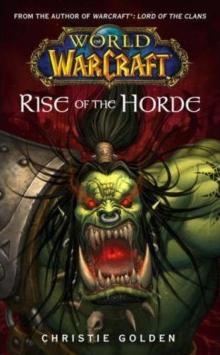 Rise of the Horde
Rise of the Horde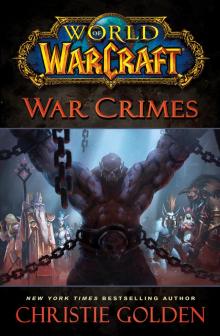 World of Warcraft: War Crimes
World of Warcraft: War Crimes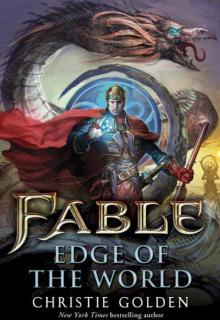 Fable: Edge of the World
Fable: Edge of the World Homecoming
Homecoming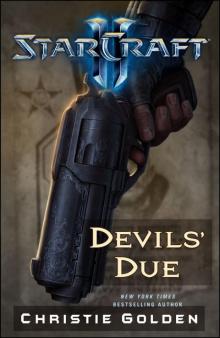 StarCraft II: Devil's Due
StarCraft II: Devil's Due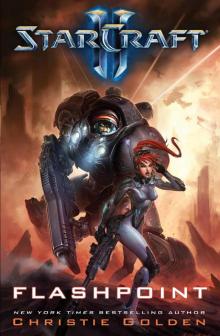 Starcraft II: Flashpoint
Starcraft II: Flashpoint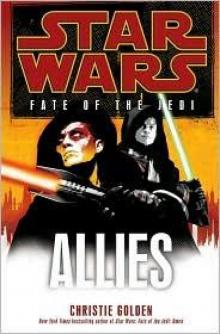 Allies
Allies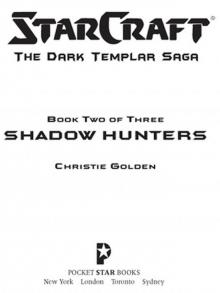 Shadow Hunters
Shadow Hunters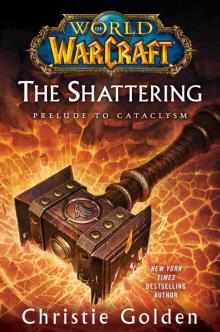 The Shattering: Prelude to Cataclysm wowct-1
The Shattering: Prelude to Cataclysm wowct-1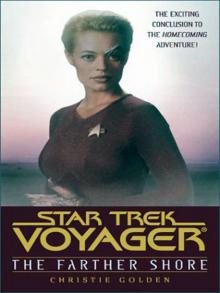 STAR TREK: VOY - Homecoming, Book Two - The Farther Shore
STAR TREK: VOY - Homecoming, Book Two - The Farther Shore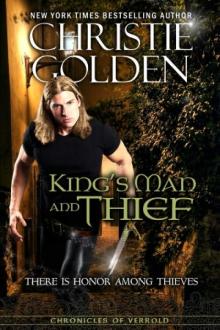 King's Man and Thief
King's Man and Thief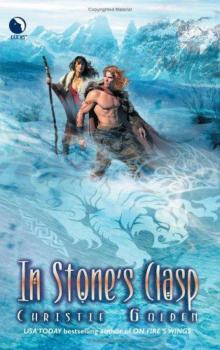 In Stone's Clasp
In Stone's Clasp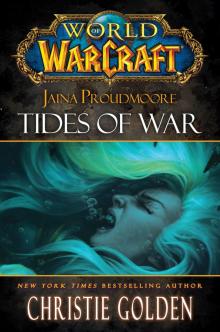 Jaina Proudmoore: Tides of War
Jaina Proudmoore: Tides of War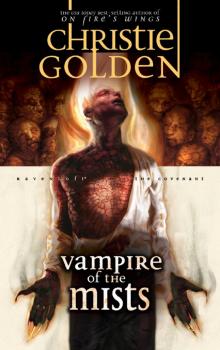 Vampire of the Mists
Vampire of the Mists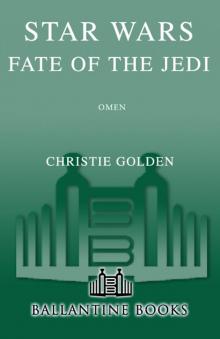 Star Wars: Fate of the Jedi II: Omen
Star Wars: Fate of the Jedi II: Omen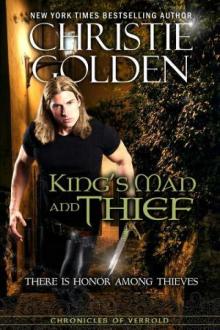 King's man and thief cov-2
King's man and thief cov-2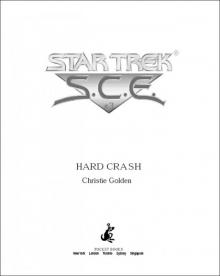 Star Trek
Star Trek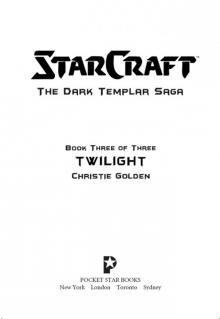 StarCraft: Dark Templar: Twilight
StarCraft: Dark Templar: Twilight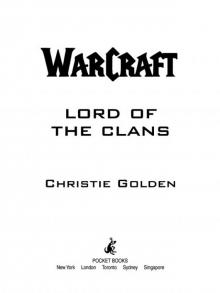 Lord Of The Clans
Lord Of The Clans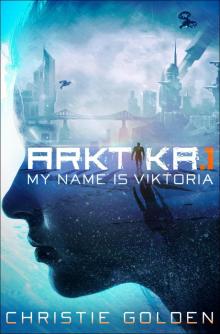 ARKTIKA.1 (Short Story)
ARKTIKA.1 (Short Story)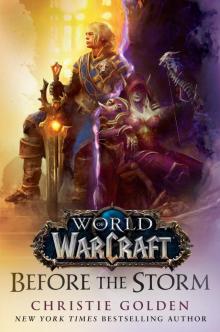 Before the Storm
Before the Storm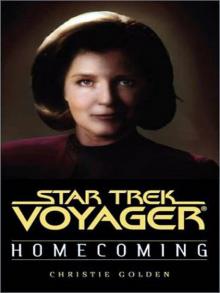 STAR TREK: VOY - Homecoming, Book One
STAR TREK: VOY - Homecoming, Book One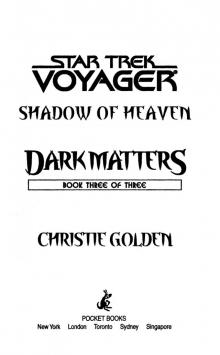 Shadow of Heaven
Shadow of Heaven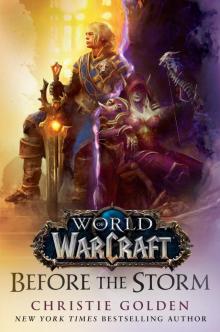 Before the Storm (World of Warcraft)
Before the Storm (World of Warcraft)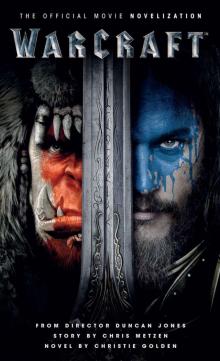 Warcraft Official Movie Novelization
Warcraft Official Movie Novelization Flashpoint
Flashpoint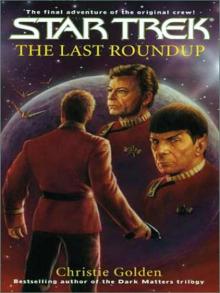 STAR TREK: The Original Series - The Last Roundup
STAR TREK: The Original Series - The Last Roundup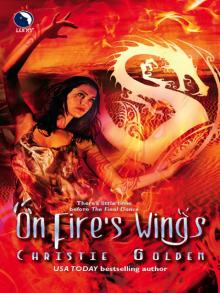 On Fire’s Wings
On Fire’s Wings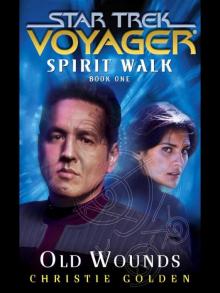 Spirit Walk, Book One
Spirit Walk, Book One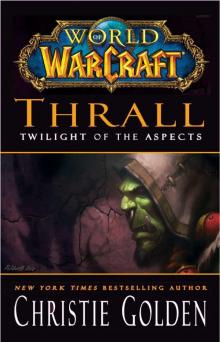 Thrall Twilight of the Aspects
Thrall Twilight of the Aspects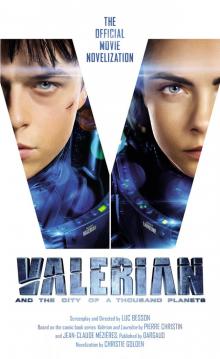 Valerian and the City of a Thousand Planets
Valerian and the City of a Thousand Planets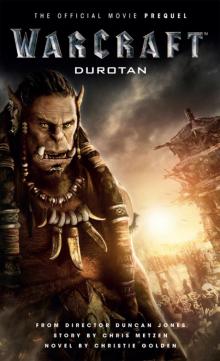 Warcraft
Warcraft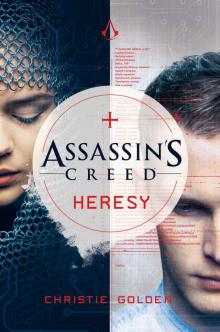 Assassin's Creed: Heresy
Assassin's Creed: Heresy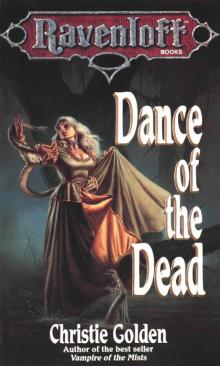 Dance of the Dead
Dance of the Dead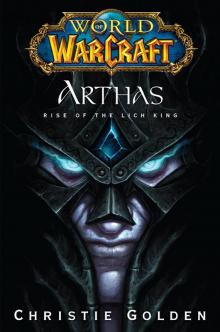 Arthas: Rise of the Lich King wow-6
Arthas: Rise of the Lich King wow-6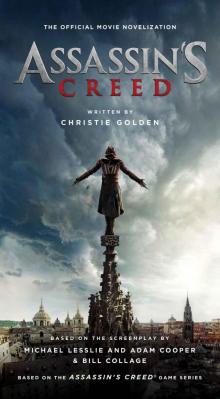 Assassin's Creed: The Official Movie Novelization
Assassin's Creed: The Official Movie Novelization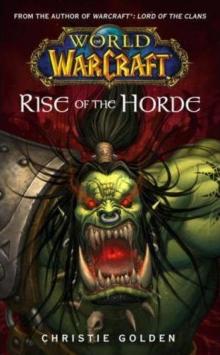 Rise of the Horde wow-2
Rise of the Horde wow-2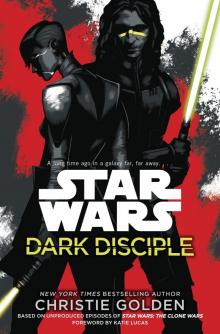 Dark Disciple
Dark Disciple Ghost Dance
Ghost Dance The Shattering
The Shattering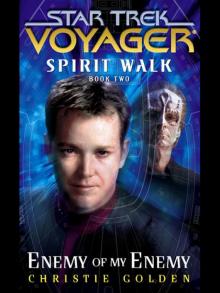 Spirit Walk, Book Two
Spirit Walk, Book Two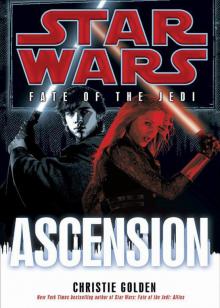 Star Wars: Fate of the Jedi: Ascension
Star Wars: Fate of the Jedi: Ascension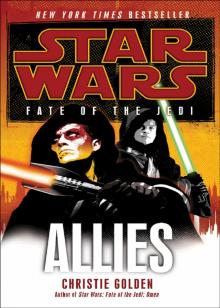 Star Wars: Fate of the Jedi V: Allies
Star Wars: Fate of the Jedi V: Allies The Enemy Within
The Enemy Within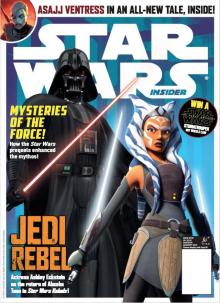 Kindred Spirits
Kindred Spirits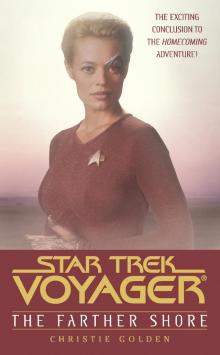 The Farther Shore
The Farther Shore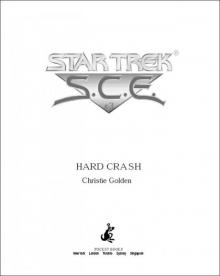 Star Trek: Hard Crash (Star Trek: Starfleet Corps of Engineers Book 3)
Star Trek: Hard Crash (Star Trek: Starfleet Corps of Engineers Book 3) Twilight
Twilight